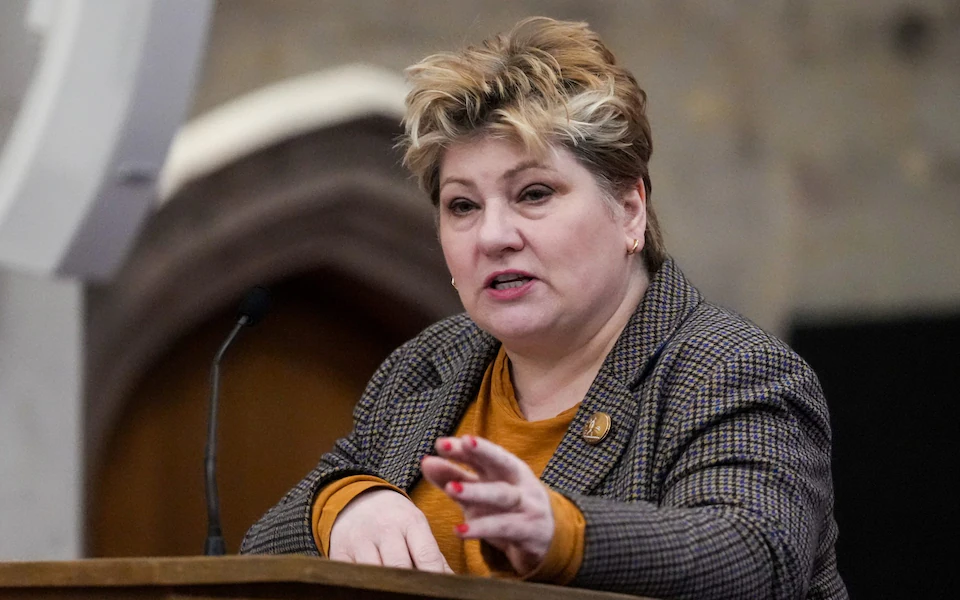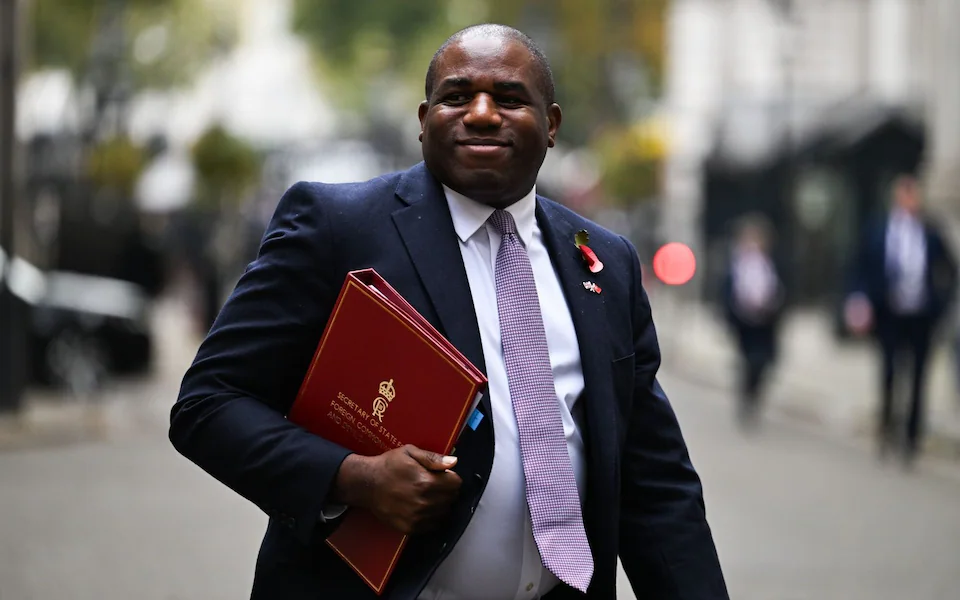Sadiq Khan and Labour MPs Condemn Trump Victory
- November 6, 2024
- 0
In the wake of Donald Trump’s presidential victory, London Mayor Sadiq Khan led a wave of criticism from Labour Party figures, highlighting concerns about the impact on global
In the wake of Donald Trump’s presidential victory, London Mayor Sadiq Khan led a wave of criticism from Labour Party figures, highlighting concerns about the impact on global

In the wake of Donald Trump’s presidential victory, London Mayor Sadiq Khan led a wave of criticism from Labour Party figures, highlighting concerns about the impact on global democracy, women’s rights, and climate policy. While Labour voices expressed alarm, party leader Sir Keir Starmer has navigated a careful line, extending congratulations and emphasizing the “special relationship” between the UK and the U.S.

In a swift response to Trump’s victory, London Mayor Sadiq Khan issued a statement expressing concerns about the direction of U.S. policies. Khan, a frequent critic of Trump, remarked, “The lesson of today is that progress is not inevitable.” He acknowledged that many Londoners might feel anxious about the potential impacts on women’s rights, NATO, and global issues like climate change. Khan reaffirmed London’s commitment to values of inclusivity and human rights, stating, “London is – and will always be – for everyone.”
Labour MP Emily Thornberry echoed Khan’s sentiments, standing by previous comments labeling Trump a “racist sexual predator.” When pressed on BBC Radio, Thornberry maintained her critical stance, yet acknowledged that, as president, Trump remains a key figure for the UK to work with on the global stage.
Labour MP Stella Creasy took to social media in what appeared to be an indirect criticism of Trump, emphasizing the need to rebuild a global political agenda focused on talent and rights rather than hatred. Without naming Trump explicitly, Creasy wrote, “Stop blaming women wanting rights, as if the men who vote for a man who denies them aren’t accountable.” Her remarks underscored deep-seated concerns within Labour circles about the implications of Trump’s second term.
“Progress is not inevitable,” Khan warned, describing Trump’s win as a potential setback for global values.
While prominent Labour figures voiced strong opposition, Labour leader Sir Keir Starmer opted for a diplomatic approach. In a congratulatory statement, Starmer welcomed the opportunity to work with Trump, extending warm wishes and underscoring the long-standing “special relationship” between the UK and the U.S. “From growth and security to innovation and tech,” Starmer stated, “I know that the UK-US special relationship will continue to prosper.”
Behind the scenes, Starmer has already taken steps to foster rapport with Trump’s team. He held a private dinner with Trump earlier this year, aiming to establish a constructive working relationship. However, Starmer faces a unique challenge in uniting the Labour Party’s stance on Trump; his allies in Parliament have publicly criticized Trump’s policies, risking diplomatic friction with the new U.S. administration.
“The UK stands shoulder to shoulder with the U.S. in defense of freedom and democracy,” Starmer affirmed, signaling a commitment to collaboration despite ideological differences.

In a noticeable shift, UK Foreign Secretary David Lammy issued a congratulatory statement after Trump’s win, despite his past criticisms. Lammy, who once called Trump a “neo-Nazi-sympathising sociopath,” acknowledged Trump’s success, saying, “The UK has no greater friend than the U.S.” Lammy also noted the importance of working with Vice President-elect JD Vance, whom he referred to as a “friend,” to preserve the UK-US alliance.
Lammy’s comments underscore the internal balancing act Starmer faces as he seeks to maintain party unity while building diplomatic ties with Trump’s administration. Lammy’s shift in tone reflects the practical reality of his role as Foreign Secretary and the need for constructive international relations, even when ideological divides persist.
The differing reactions within the Labour Party illustrate a complex landscape as Starmer navigates relationships with Trump’s administration. Starmer’s efforts to engage constructively with Trump have also been challenged by reports that a former senior Labour aide organized activists to campaign for Trump’s Democratic rival, Kamala Harris, creating further tension in Labour’s approach to U.S. relations.
The response to Trump’s win extends beyond the Labour Party. In the media, prominent figures have openly expressed disbelief. ITV’s Tom Bradby remarked on the shock of Trump’s re-election, suggesting many Britons may struggle to understand how the U.S. could choose someone perceived as a “fascist.” Emily Maitlis, former BBC broadcaster and co-host of LBC’s News Agents podcast, appeared visibly perturbed on air, disappearing from a Channel 4 panel amid speculation that she had an emotional reaction to the news.
Critics of Trump within the UK warn that his policies could strain international alliances, weaken efforts against climate change, and foster political instability. Labour’s response highlights a deeply divided perspective on how best to handle Trump’s victory. For Starmer, building a relationship with Trump’s administration is critical, but he must also address the concerns raised by his party and liberal constituents.
As Donald Trump prepares to re-enter the White House, Labour faces the challenge of balancing diplomatic strategy with ideological opposition. For Keir Starmer, the path forward will require careful diplomacy to uphold the UK’s “special relationship” with the U.S. while addressing internal discord within Labour ranks.
The polarized response from Labour MPs like Khan, Thornberry, and Creasy suggests a growing divide between ideological commitment and pragmatic diplomacy within the party. Starmer’s efforts to maintain a constructive dialogue with Trump will be closely watched, with implications not only for UK-U.S. relations but also for Starmer’s leadership within Labour. For now, the Labour Party’s reaction reflects broader concerns across the UK about the global impact of Trump’s policies, setting the stage for a complex relationship moving forward.